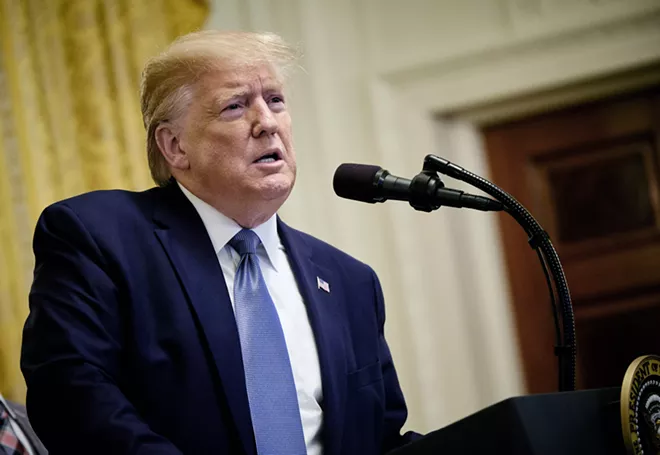
The New York Times Company
NEW YORK — A federal judge on Monday rejected a bold argument from President Donald Trump that sitting presidents are immune from criminal investigation, the first significant ruling in a case that could require Trump to hand over his tax returns and ultimately test the limits of presidential power.
Judge Victor Marrero of Manhattan federal court dismissed a lawsuit that had been filed by Trump seeking to block a subpoena for eight years of his personal and corporate tax returns. The Manhattan district attorney demanded the records in late August as part of an investigation into hush-money payments made in the run-up to the 2016 presidential election.
In a 75-page ruling, Marrero called the president’s argument that the Constitution shields sitting presidents from any criminal investigation “repugnant to the nation’s governmental structure and constitutional values.” Presidents, their families and businesses are not above the law, wrote the judge.
Trump’s tax returns, however, remain protected for now. His lawyers quickly appealed to the 2nd U.S. Circuit Court of Appeals in Manhattan, which agreed to temporarily block the subpoena while it considers initial arguments in the case.
The judge’s decision came a little more than a month after Manhattan District Attorney Cyrus R. Vance Jr. subpoenaed Trump’s accounting firm, Mazars USA, for his personal and corporate returns dating to 2011.
Vance’s office has been investigating whether any New York state laws were broken when Trump and his company reimbursed the president’s former lawyer and fixer, Michael Cohen, for payments he made to pornographic film actress Stormy Daniels, who had said she had an affair with Trump. Trump has denied having an affair with her.
Trump’s lawyers sued last month to block the subpoena. The lawyers acknowledged that their constitutional argument had not been tested, but said presidents have such enormous responsibility and a unique position in government that they cannot be burdened with investigations, especially by local prosecutors who might be politically motivated.
The case also drew in the Justice Department, which did not take a position on the merits of the president’s argument but supported his request to delay enforcement of the subpoena because of the “significant constitutional issues.”














